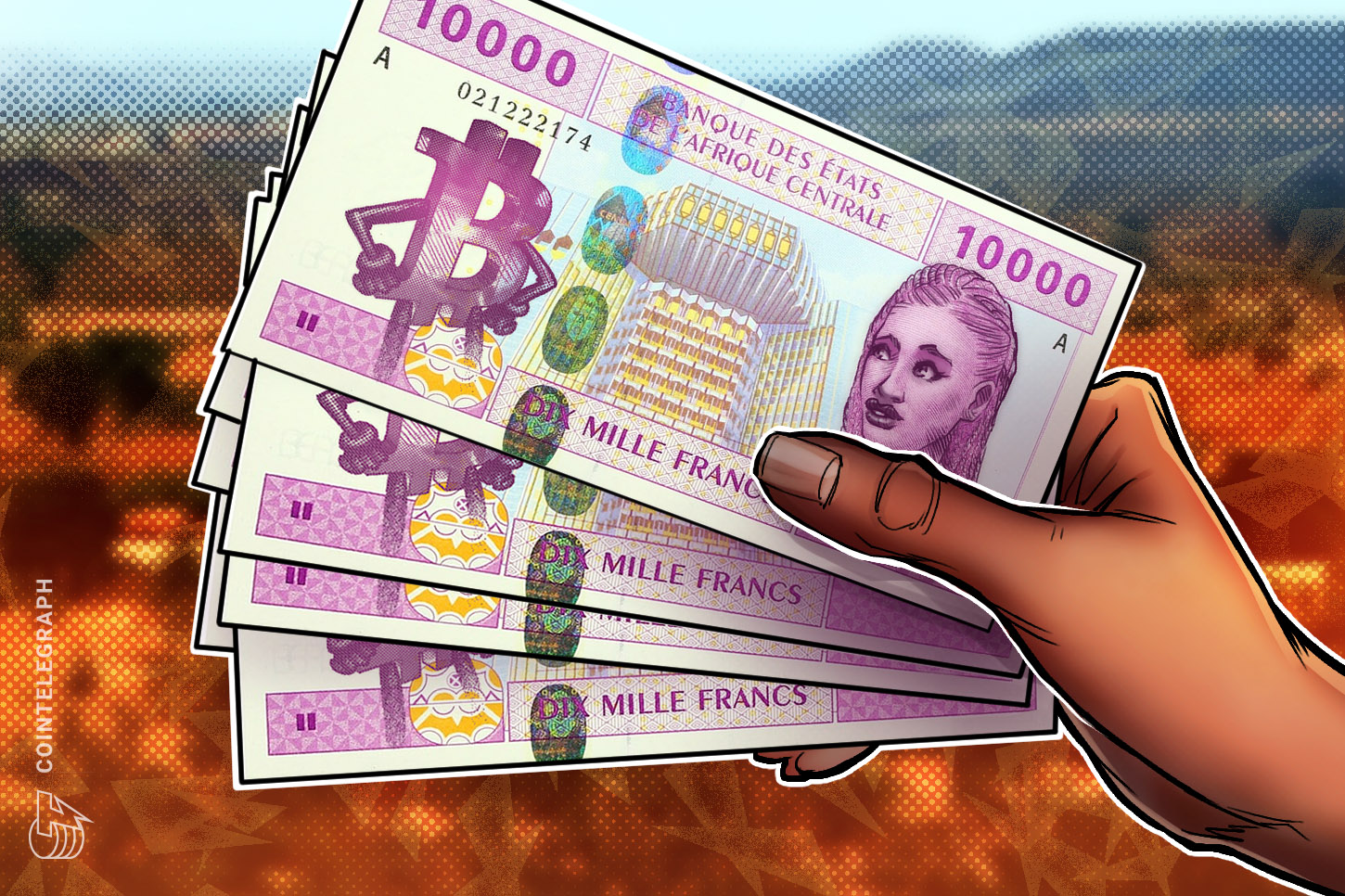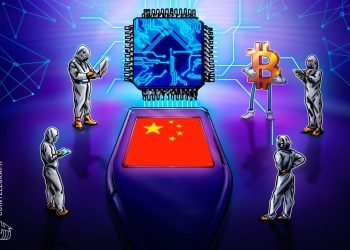Vào mùa xuân năm 2022, Cộng hòa Trung Phi (CAR) trở thành quốc gia châu Phi đầu tiên áp dụng Bitcoin (BTC) làm đấu thầu hợp pháp.
Là quốc gia thứ hai trên toàn cầu công nhận Bitcoin theo kiểu như vậy, CAR theo bước chân của El Salvador. El Salvador kể từ đó đã tự hào về số lượng du lịch tăng lên, một nền kinh tế kiên cường và một lượng PR miễn phí lành mạnh kể từ khi cho phép công dân của mình thực hiện mua hàng ngày với tiền điện tử tinh thần.
CAR, một nền kinh tế kém phát triển kinh tế hơn đáng kể so với đối tác Trung Mỹ, hy vọng sẽ mô phỏng thành công của El Salvador. Bất chấp sự giàu có tài nguyên thiên nhiên rộng lớn của quốc gia, CAR bị cản trở bởi quản lý kém kinh tế, đầu tư tư nhân và nước ngoài ít ỏi, và các vấn đề chính phủ có hệ thống.
It is one of the poorest countries on the poorest continent in the world, ranking right at the bottom of the World Bank’s Human Development Index. To make matters worse, up to 85% of the country’s exports are kept in French treasuries, while its currency of choice, the CFA franc, is heavily biased toward economic development in France. Consequently, tapping into a neutral, open-source and censorship-resistant monetary system such as Bitcoin could not only benefit but emancipate the country.
Tổng thống Bitcoiners
Similar to El Salvador, the CAR law would make Bitcoin “official money.” Naturally, this decision was lauded by Bitcoin advocates the world over. Plus, it appeared that CAR President Faustin-Archange Touadéra, a mathematician and Bitcoin supporter on social media, was inclined to support the adoption of the unique cryptocurrency. The pro-Bitcoin tweets smack of El Salvador’s laser-eyed president, Nayib Bukele.
Toán học là #language của Vũ trụ. #Bitcoin là tiền phổ quát.
— Faustin-Archange Touadéra (@FA_Touadera) Tháng tư 27, 2022
Tuy nhiên, lễ kỷ niệm và hỗ trợ đất nước trong cộng đồng Bitcoin chỉ tồn tại ngắn ngủi vì, mặc dù những người ủng hộ chỉ có Bitcoin thăm chính thức – bao gồm cả Galoy Money – đất nước đã bắt đầu dự án token của riêng mình. Chỉ vài ngày sau khi luật Bitcoin có hiệu lực, đất nước này đã gây bất ngờ cho cộng đồng crypto bằng cách thông báo việc tạo ra một mã thông báo mật mã được gọi là Sango. Dân số 5 triệu người cũng sẽ được hưởng lợi từ một “trung tâm mật mã” ở thủ đô Bangui.

Cointelegraph sat down in Senegal, West Africa with Mamadou Moustapha Ly, the Central African technician who oversaw the development of Sango Coin, to ask about the project’s development. A payments expert, Ly also runs the fintech startup Kete Cash. Ly shed light on the creation of what he called a “token, not a currency,” labeled Sango. Sango is the token that would accompany the country’s plans to adopt Bitcoin as a legal tender.

Đầu tiên, Lý nhấn mạnh rằng luật Bitcoin-as-Legal-đấu thầu quy định rõ ràng rằng đất nước sẽ áp dụng Bitcoin. Không có đề cập đến các loại tiền điện tử khác hoặc thậm chí Sango Coin. Ông đã vẽ một sự phân chia rõ ràng giữa Sango và Bitcoin:
“The law states that the digital currency that is legal tender is Bitcoin. We recognize this as our official currency. […] Sango coin is a project for the Central African Republic state.”
Sango Coin cung cấp các ưu đãi hấp dẫn cho các nhà đầu tư nước ngoài, bao gồm quyền công dân bằng đầu tư và cuối cùng là hộ chiếu CAR, cũng như lợi thế quản trị. Trong một nghĩa nào đó, mua Sango là một cách để mua cư trú trong nước, mà không cần chạm vào tiền tệ fiat do chính phủ phát hành.
Một nỗ lực token
But why was this necessary? El Salvador did not create a new token to support its Bitcoin adoption efforts — so, why would the CAR?
To compare the two country’s Bitcoin adoption strategies, both countries announced Bitcoin as a legal tender. From that point onward, they diverge. In El Salvador, foreigners could initially buy residency with an investment of 3 BTC, although it was then rescinded. In the CAR, “e-residency can be obtained […] by locking a fixed collateral of SANGO Coins in the amount of 6000$ for a period of 3 years.” Plus, foreign investors can directly access the country’s strategic resources through the use of the crypto token, Ly explained.
To gain exposure to El Salvador’s rapid development without touching Bitcoin, the Central American country teed up volcano bonds. The volcano or Bitcoin bonds support the creation of a “Bitcoin City” and are backstopped by the government. In contrast, Sango is a cryptocurrency built on a blockchain “backed by Bitcoin.”
The now-defunct Luna Classic (LUNC) token was the last time a token used Bitcoin as its treasury. The token’s meltdown wiped billions of dollars from the crypto total market cap and dented confidence in the industry. So, why create a token? Why build a system liable to hacking or attack from malicious actors? And why do so despite the Bitcoin contingent’s best interest to steer a Bitcoin-only path?
Ly explained that Sango is a “government project.” Money raised through the sale of Sango Coin will be used to buy Bitcoin, which can then be used to acquire the materials necessary for development projects, as well as to pay for labor and other expenses.
It’s important to note the country’s dire financial situation. Reports continue to indicate that civil servants and government salaries are paid by its former colonizer, France, while the country is labeled a “repressed” economy according to the Heritage Foundation’s 2022 Index of Economic Freedom.
While Bitcoin advocates hail Bitcoin adoption as a panacea to most modern-day problems, in the CAR, the priorities are clean water, security, education then maybe internet connectivity. With these motivations, the country needs investment — fast.

To this point, Ly noted that the Central African Republic’s high level of external debt makes it difficult for the country to access traditional forms of financing. Sango Coin could be that alternative source of funding. Indeed, one could infer that the quick liquidity provided by Sango is a way of jumpstarting much-needed foreign direct investment (FDI) into the country.
Related: ‘We don’t like our money’: The story of the CFA and Bitcoin in Africa
In addition, the use of a crypto token allows for greater flexibility and speed in conducting financial transactions, as well as reducing the risk of fraud, he commented. In a sense, the use of Sango could sidestep the bureaucracy and slow administrative practices for which Central African governments are known. Plus, it could allow investment flows into the country without touching dollars or the local currency.
When asked why the Central African Republic did not simply use Bitcoin or the superfast Lightning Network for these purposes, Ly reiterated that Sango Coin is intended to serve as a token associated with the government project: “It’s not a general-purpose currency.”
Sango could allow for greater control over the flow of funds, therefore reducing the risk of capital flight. In addition, the World Bank points out that the country will not be able to develop its human capital without strengthening domestic revenue mobilization sustainably. Sango could be the quickest path to more robust revenues.
Bitcoin on the ground
Paco De La India, known as “Run with Bitcoin,” recently spent two weeks traveling in the CAR in the hopes of spending Bitcoin and interacting with Bitcoin people. He told Cointelegraph:
“There was no not even a single business that accepted Bitcoin. I gave my guide a tip in Bitcoin. I paid my host in Bitcoin.”
With those small successes aside, Paco told Cointelegraph that Bitcoin adoption on the ground was minimal. In a country where less than a quarter of the country has access to the internet — a basic requirement to use “magic internet money” — it’s hardly surprising.
As for the creation of Sango Coin, Paco suggested there could be external forces at play. The CAR is tremendously resource-rich, so why couldn’t a French state-run project meddle with the creation of the token? he questioned. The token was indeed created quickly after state visits to one of the world’s crypto hubs, Dubai.
Ly explained that foreign influences did have an effect on the decision-making process:
“The idea for Sango Coin came from a private partner based in Dubai who discussed it with the Head of State.”
And a deal was struck with foreign investors, but there was no suggestion that the former colonial power may be using Sango Coin to control resources. It might simply be the quickest way to raise capital and, as Ly suggested, use this capital to buy Bitcoin and build the country’s infrastructure.
Ultimately, Bitcoin adoption and the creation of Sango appear to be a ploy to inject much-needed FDI into the country and enhance the country’s standing globally. However, the creation of this token may shun interest from the wider Bitcoin community, arguably the frontline investors to places and jurisdictions that announce their plans for Bitcoin.

























